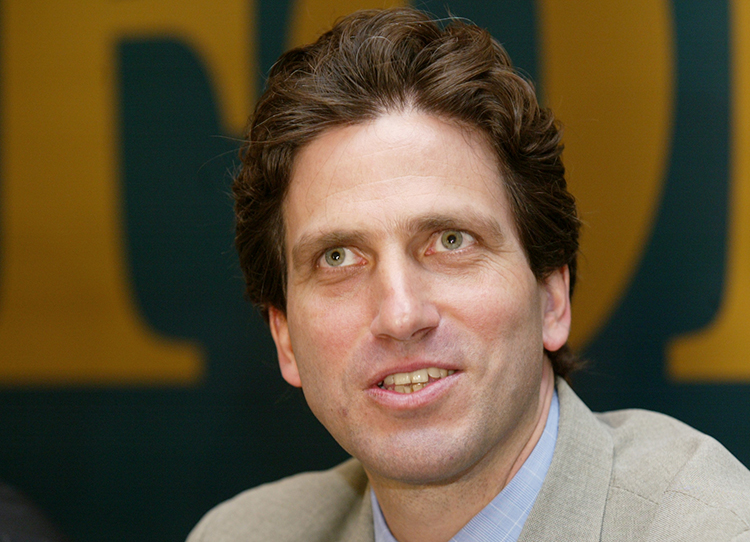Ukraine’s state intelligence agency announced on November 18 that it had detained a man wanted by Interpol for the high-profile murder of American journalist Paul Klebnikov in Russia 13 years ago. Russia’s Interior Ministry on November 20 named the suspect as Magomed Dukuzov and said that Ukrainian authorities had apprehended him at its request, according to Russian news agency TASS.
Klebnikov, a New Yorker of Russian descent, was working as editor of Forbes’ Russian edition when he was gunned down outside its Moscow office on the evening of July 9, 2004. He was 41. Klebnikov’s colleagues and Russian media reported at the time that the motive may have been the journalist’s work investigating Russia’s often violent criminal underworld and shady dealings of some of its powerful business elite.
Contacted by CPJ via email on November 20, Klebnikov’s brother, Peter, responded to news of the arrest, saying, “The issue is really who is the mastermind, and in identifying, investigating and finding him, the Russian government has failed completely. So this arrest, while important, is still a bit of a sideshow.”
When the Security Service of Ukraine (SBU) announced the arrest in a statement, it alleged that the Russian national of Chechen origin “participated in a number of assassinations, in particular, the editor-in-chief of the Russian edition of Forbes and the deputy chairman of the apparatus of the government of the Chechen Republic in 2001-2003.”
The agency said that after fleeing Russia, the suspect, whom it did not identify, allegedly became involved in “an organized criminal group, which in Ukraine was engaged in extorting money from private entrepreneurs.”
The SBU said that it is conducting necessary procedures, including those related to extradition. But it remains unclear if or when Dukuzov could be returned to Russia. When reached by phone, the SBU in Kiev declined to comment, citing procedure and telling CPJ to send a written request. CPJ did not immediately receive a response to that request. Russia’s Interior Ministry did not return CPJ calls or an emailed request.
But Russia’s Interior Ministry did confirm the arrest in a statement given to the Interfax news agency, in which it said the Russian Prosecutor-General’s Office had also been notified of Dukuzov’s capture.
Since Klebnikov’s murder in 2004, little progress has been made in the case. Three people charged in Russia in 2006, including Dukuzov’s brother, Kazbek, were later acquitted. Russia’s Supreme Court overturned the verdict and ordered a retrial for Kazbek Dukuzov, but he fled before the proceedings could be held, Forbes reported.
Russian authorities sought Magomed Dukuzov in connection with the murder, the state news agency ITAR-TASS reported at the time. But he was not apprehended until last week.
The Klebnikov family said in a statement in 2006 that it viewed the Supreme Court ruling as a “hopeful sign for justice” but it was disappointed that “Paul’s killers and those who ordered this vicious crime are still at large.”
Peter Klebnikov told CPJ, “[The family] continue to expect justice, and are willing to cooperate with the Russian authorities but have received virtually no communication from them in recent months.”
Kazbek Dukuzov is believed to be imprisoned in the United Arab Emirates for crimes unrelated to the killing of Klebnikov, according to a 2013 Forbes report. The same report said that Kazbek Dukuzov had been blacklisted by the U.S. under the Magnitsky Act, а law meant to punish Russians implicated in human rights abuses.
The Russian Prosecutor-General’s Office has alleged that Chechen separatist leader Khozh-Akhmed Nukhayev, a subject of a critical book published by Klebnikov in 2003, mastermind the journalist’s killing.
The U.S.-born Klebnikov, who was of Russian descent, moved to Moscow in 2004 to launch the Russian edition of Forbes magazine. The first edition hit newsstands in April 2004. Two-and-a half months later, Klebnikov was gunned down outside the Moscow office.
Klebnikov is one of 38 journalists murdered in direct retaliation for their work in Russia since 1992. Of those, 33 were killed with complete impunity, according to CPJ research.
[Reporting from Kiev]
